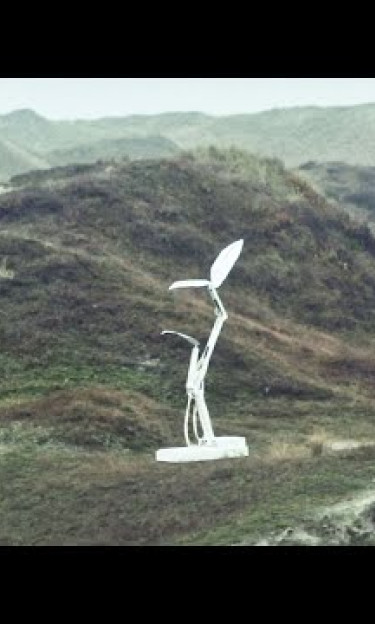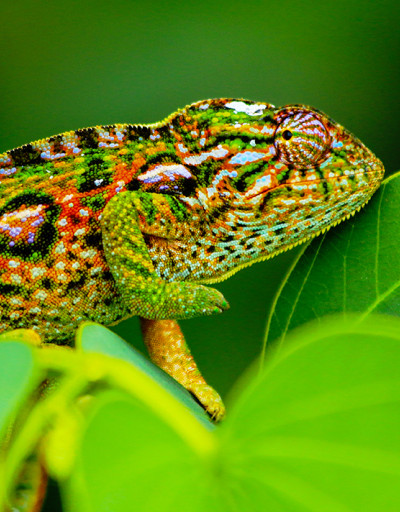
UNESCO's contribution to the UN Biodiversity Conference - COP 15
This COP15 is to adopt a new post-2020 Global Biodiversity Framework, which will set global targets to halt and reverse the erosion of biodiversity.
The 15th Conference of the Parties to the Convention on Biological Diversity (COP 15) will take place under the presidency of China, in Montreal on 7-9 December 2022 It will be preceded by the 5th session of the open-ended working group on the negotiation of the post-2020 global framework for biodiversity on 3-5 December 2022.
This COP 15 is to adopt a new post-2020 Global Biodiversity Framework, which will set global targets to halt and reverse the erosion of biodiversity.
Setting a new path for biodiversity
This Conference of the Parties to the UN Convention on Biological Diversity (CBD) will set a clear course for the next decade of action to stop and reverse biodiversity loss and ensure that biodiversity is used sustainably.
At the conference, the 196 Parties to the CBD are expected to adopt a new global framework to safeguard biodiversity and its contributions to human well-being. The agreement will serve as a global plan for biodiversity a roadmap to achieve the Convention’s three objectives: conservation of biodiversity, sustainable use of its components, and equitable sharing of benefits from the use of genetic resources.
Such a framework will re-establish a mutually beneficial relationship between people and biodiversity, and set the world on a socio-ecologically centred development pathway for the decades to come.
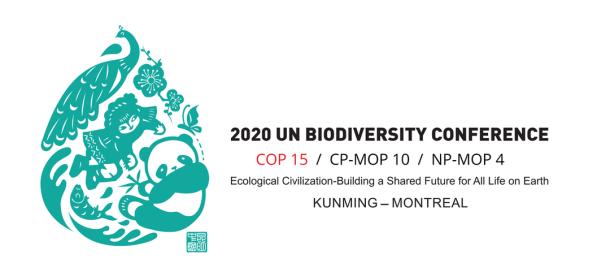
UNESCO's contribution
UNESCO is fully committed to support its Member States in the implementation of the post-2020 Global Biodiversity Framework, and has even higher ambitions in recognizing the multiple values of nature, including in a cultural perspective.
UNESCO can rely on its unique networks of designated sites –biosphere reserves, world heritage sites and UNESCO Global Geoparks– which are committed to translate local, indigenous and scientific knowledge-based recommendations into concrete actions within territories. UNESCO designated sites are committed to emphasizing the diversity of values associated with life and reconnecting humans with the biosphere by changing their behaviour at the individual level, but also to promoting collective actions that shape public action.
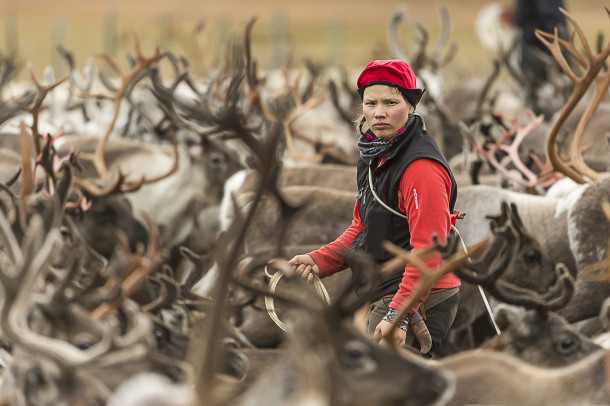
Biosphere Reserve, Sweden
"We must develop a form of ecology based on reconciliation, a new form of environmental ethics where humans learn to preserve biodiversity by living with it, rather than isolating it.
To bring about this reconciliation, UNESCO has an incredible reservoir of experience, with 257 natural World Heritage sites, 738 Biosphere Reserves and 177 Global Geoparks. This reservoir deserves to be better known, because it contains many models to discover and duplicate."
Audrey Azoulay, Director-General of UNESCO
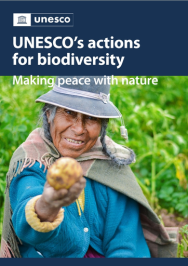
Events
Beyond 30 by 30: Alternative perspectives on area-based conservation for ambitious implementation
10 December 2022, 01:45 pm
Venue: GRULAC meeting room
Nature & Culture Summit
11-12 December 2022 (all day)
Restoration Day: Science and Traditional Knowledge
13 December 2022 (all day)
Venue: Rio Conventions Pavilion
Mobilising the biodiversity-related Conventions on the implementation of the Post-2020 Global Biodiversity Framework
14 December 2022, 01:15 pm
venue: JUSCANZ Meeting Room
Sites for Sustainable Development: UNESCO sites at the forefront of innovative local solutions to the global biodiversity crisis
15 December 2022, 01:15 pm
Venue: Side-event 1 (512E)
High Level Segment
15- 17 December 2022 (all day)
Venue: Palais des congrés
With the participation of the Director-General of UNESCO (TBC)
UNESCO Earth Network, a programme to strengthen the role of UNESCO designated sites in the implementation of the post-2020 global biodiversity framework and the 2030 Agenda
16 December 2022, 06:15 pm
Venue: SIDS meeting room
An Ocean of Life: Knowledge and Solutions for Marine and Coastal Biodiversity under the Post-2020 Global Biodiversity Framework
16 December 2022, 08:30 am – 01:00 pm
Venue: Rio Conventions Pavilion
Nature-based Solutions in the Nordics - status, cases and policy options and legal tools
18 December 2022, 01:15 pm
Venue: Side-event 2 (512F)
Artwork: Econario
By artist Thijs Biersteker, Prof. Andy Purvis and Dr Adriana de Palma
The artwork ‘Econario’ provides a powerful representation of how choices society makes today will affect the state of nature over the next thirty years.
Ecological artist Thijs Biersteker has created a 5-metre-tall robotic plant, growing on biodiversity prediction data from the Natural History Museum (IK). The artwork is presented during COP 15 to turn the conference results into a tangible experience, relatable and understandable, acting as a thermometer of the conference. Based on the accomplishments of COP 15, this art installation will grow or decline, showing the impact this will have on the biodiversity of tomorrow.
